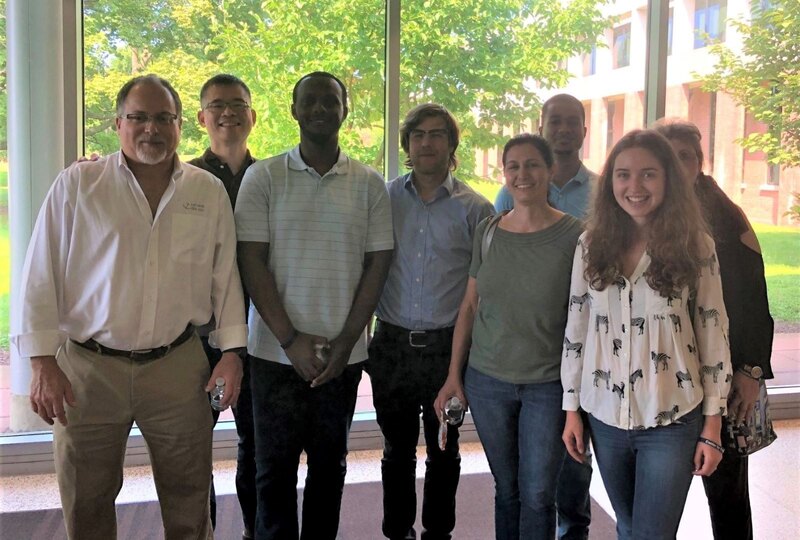Equity and Inclusion in Practice: Anchor QEA

In issuing the New Landscape Declaration, the Landscape Architecture Foundation made a commitment to strengthen and diversify our global capacity as a profession and to cultivate a bold culture of inclusive leadership, activism, and advocacy within our ranks. To promote these values, LAF is showcasing ways in which design firms are demonstrating leadership on issues of diversity, equity, and inclusion (DEI). Below, we highlight how Anchor QEA is working to integrate DEI into everything they do.
Anchor QEA is an environmental consulting firm with 26 locations throughout the United States. The firm’s approach to equity and inclusion factors in the geographic and size diversity of its offices and strives to create positive impact for both employees and those touched by the firm’s work. Supported at the highest levels of leadership, Anchor QEA’s experience highlights how having a champion can bolster DEI efforts.
Anchor QEA’s decision to promote the values of diversity, equity, and inclusion within its work developed organically as a response to questions and conversations raised by employees of all levels. Recognizing that they did not possess all the answers to staff’s questions—and driven by the desire to represent a greater cross-section of the company—Anchor QEA’s leadership established a Diversity, Equity, and Inclusion Committee (DEIC), made up of members from a variety of offices, roles, racial and ethnic backgrounds, and points in their careers.
The committee was formed in 2018 and focused initially on discovery: defining what equity and inclusion mean at Anchor QEA, understanding how those principles show up in the firm’s work, and identifying how to promote related values in their workplace. As a result, the committee identified four guiding principles for equity and inclusion at the firm:
- Everyone is entitled to be respected and heard.
- Diversity makes us stronger.
- Everyone has a unique perspective and something to contribute.
- Equity is essential for employee recruitment, hiring, professional growth, and performance evaluation.
The committee’s co-chairs, Leah Erickson and Ramzy Makhlouf, both agree that having a DEI champion within Anchor QEA’s leadership is critical to the committee’s ability to get work done—and even to its existence. With firm leaders modeling support by listening to voices at all levels, the conversation has grown organically across the company. Much of the committee’s work to date has been conceptual, laying the groundwork for a strategic plan that will help intention translate to outcome.
As of early 2020, the committee has shifted its focus to creating actionable steps for working toward ever-greater equity and inclusion. Informed by two years of conversation and research, the committee is working toward concrete outcomes to support DEI both internally and externally through the efforts of three subcommittees: Unpack, Communicate, and Connect.
Through unpacking, Anchor QEA staff and shareholders are diving into the details of multiple DEI-related topics, conducting surveys and interviews with a focus on understanding recruitment, hiring, and retention. Those who are focused on communicating help the DEIC spread the message of its goals and progress company-wide through internal communications, presentations to leadership and staff, and a dedicated segment at the company’s bi-annual retreat. Those who are tasked with connecting are focused externally, working to understand how to better meet client needs and identifying opportunities for learning within the greater community.
Additionally, members of Anchor QEA’s DEIC are maintaining visibility and impact within the company by bringing a DEI perspective to initiatives ranging from the cultural (holiday cards) to the procedural (recruiting) to the strategic (company-wide planning and messaging).
When asked about the difficulties faced in engaging in DEI work at Anchor QEA, committee members cited one important challenge. “We are ultimately a consulting company so quality, service, and integrity of projects is core, which can make finding time for this work a challenge,” said co-chair Leah Erickson. For many professional services companies, balancing time spent on billable projects with unbillable time spent on internal initiatives is difficult, especially when establishing a new committee from scratch. Committee members are passionately invested in DEI work, but must still strike a balance with work productivity and meeting the needs of their clients.
Today, thanks to two years of dedicated groundwork laid by the DEIC, equity and inclusion efforts are top of mind across the company. Excitement and engagement are growing as DEI principles become more embedded in “business as usual” at Anchor QEA, paving the way for positive impacts on employees and clients in the years to come.










